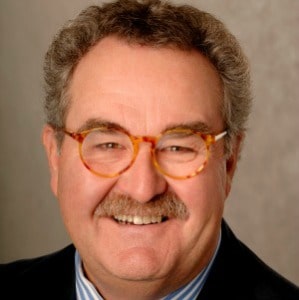
All year long, in the print edition of Radio Ink magazine, we’ve been taking a look back at the 1996 Telecom Act that transformed the radio industry. When the law passed, one broadcaster all fired up and ready to get in on the act was Bill Stakelin. Stakelin owned Apollo Broadcasting at the time and, having just gotten over the euphoria of duopoly, Stakelin could not believe his ears when he heard the ownership floodgates had been opened.
Stakelin’s take on the Telecom Act will appear in our upcoming 40 Most Powerful People in Radio issue. Stakelin also appeared on our power list from 2006-2009 while he was running Regent. With Stakelin being such a highly respected broadcaster and extremely successful executive, we asked him to give us his opinion on the business he continues to love today.
RI: Why do you think the radio industry is having such a hard time growing revenue?
Stakelin: Well, I think the revenue certainly is not suffering the way people thought it would, to a degree. Of course, radio has always been the redheaded stepchild. Radio has always not gotten the respect that it deserves, in my opinion. Some of that was our own fault for the way we priced and sold it. I think it’s stronger now than probably a lot of people realize it is, if you compare it to magazines, newspapers, etc.
But I think that the real problem right now is what is the right model that gives the ownership and the shareholders of the company a fair return, and at the same time offers a service that is still wanted, needed and used, in certain hours of the day by the general public. And that’s why I like the Townsquare approach. The plan always was to create a multi-faceted media company. I think that’s what most of the operators in radio are doing now.
If a radio company right now does not have an aggressive interactive component with their operation, then they’re probably not going to be in the same position for growth to do well. The pure radio operator will continue to operate at the level they are and struggle a bit. Those that had the forethought to think in terms of media and owning complementary media all in a package, whether they’re going to present that to investors or whether they’re serving the public with it, hopefully both, they will be the guys that will succeed going down the path the next several years.
RI: Should radio be worried about the Pandoras and the Spotifys of the world?
Stakelin: Well, I think you worry about anybody that takes time away from the time that’s being spent with whatever products you have. I do think that radio has done a good job of realizing that they are a local medium and that they are a music service, as much as Pandora. While they are very fine products, they are just that, they are music systems. We used to always say once we get into being nothing but a jukebox and a music distribution system, then we will lose and we will fall in with the rest of the guys. I think there’s a good place for Pandora and satellite radio, but I think traditional radio, over-the-air, has done a good job positioning itself to serve the communities where they are. There is still reason for people to spend multiple hours a day with those local radio stations. There’s room for both. I just don’t think America has made the turn yet to a national radio system as something that is their main choice, and I think that’s pretty far down the road, if it ever occurs.
RI: Does traditional over-the-air radio play too many commercials?
Stakelin: Well, what’s too many commercials?
RI: Are you hearing too many when you listen?
Stakelin: No, I am not. Not on the stations that I’m listening to. You always have to keep — and the good broadcasters always have and always will — you have to keep the taste and the thinking of your listener, your customer, in mind. What is the tolerance level? Some people say they are just going to pay a fee and won’t have to listen to any commercials. Well, that is not the majority of thinking. Free, over-the-air broadcasting, be it radio or television, is still a primary driving component of many things that are great in this country. I think it is a very important service to this country and will always be protected, and hopefully the operators will continue to do a good job attracting large enough audiences that it won’t be threatened.
RI: What do you want to see radio do better?
Stakelin: I want to see them stay focused on the local community they serve, to where the local people in the communities feel they really are a part of that community and not a music delivery system. I want to see them stand up and take positions and be a main player and not just a jukebox in all the communities they serve. The smart ones are already doing that and will always continue to do that. I’ve been living in Cincinnati now for the last 20 years, and I find here, that no matter where I go or speak, people can come up to you and still give you the name of their favorite radio station, the call letters, the program, the personalities. It is part of their everyday life and habits. If that ever goes away, then the system really will be in trouble.
RI: What do you miss most about being inside a radio station?
Stakelin: I miss the people. Radio is a very exciting game. I miss the interaction with the people. I miss teaching and coaching young people coming into the business. I miss listening to the very smart, young executives that we were able to recruit into our company that taught me so much. The industry is full of a lot of good people, well-intended people, and I miss the hell out of them.
Reach out to Bill to say hi at [email protected]





